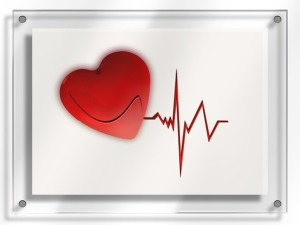We are delighted to have been featured in a San Francisco Chronicle article which highlights the rising interest in cardiac screening among athletes. I was correctly identified as being among the growing number of cardiologists who believe that current screening tools are excellent and underutilized.
The article covered the subject of screening in general, so I would like to offer some additional information for clarification.
First, let me repeat some of the reasons why we believe that screening is beneficial:
- Sudden cardiac arrest is the No.1 cause of exercise-related death in any age group, young or old.
- Most cases are due to an underlying heart condition that can be identified by non-invasive testing.
- Most victims of sudden cardiac death do not have any warning symptoms prior to the tragic event.
Let me now address some questions that are commonly raised.
Is there a scientific basis for screening?
Claims are sometimes made that there’s no basis in the medical literature to justify doing cardiac screening. This is simply incorrect. There are numerous scientific studies that support screening for heart disease.
For example, only a day before the Chronicle article was published, Reuters reported on a study by a team of Swiss investigators showing that screening middle-aged athletes is a cost-effective means of identifying early cardiovascular disease and avoiding complications. Previously, Stanford researchers had also shown that ECG screening young athletes could be cost-effective. There are many lines of evidence in the medical literature that support a screening approach.
It is important to recognize that standard medical practice always involves screening. People who go to the doctor for a routine check-up typically get a physical examination and a blood cholesterol level. These are screening tests! The question is, how good are they? There is plenty of evidence that a simple physical and a blood cholesterol level will miss the vast majority of people who have underlying heart disease and are unaware of it.
Does the American Heart Association recommend against cardiac screening?
It is also often thought that the American Heart Association (A.H.A.) or the American College of Cardiology (A.C.C.) recommend against screening healthy children or adults for heart disease. This is also incorrect. The A.H.A. and A.C.C. recently issued a position statement clarifying that they recommend against mandatory nationwide screening of youth with the ECG alone. This position is understandable, since such a mandate would be impossible to implement with resources currently available, and the ECG by itself is a less than perfect screening tool.
The A.H.A. and A.C.C. are actually very supportive of efforts by local practices and grassroots organizations to perform cardiac screenings in their communities. Recently, thate A.H.A. also endorsed screening healthy men and women over a certain age who plan to embark on a vigorous exercise program with stress testing.
We should also be mindful that the statements issued by the A.H.A. and A.C.C. are simply guidelines and are not etched in stone. They are frequently revised, they are subject to influence by a number of factors, and they are not always current with best practices.
Will screening often lead to additional invasive tests?
In my opinion, the risk that a cardiac screen can lead to unnecessary invasive tests and complications is greatly overstated.
First of all, our approach is to combine basic non-invasive tests such as the ECG, echocardiogram, and treadmill stress test from the get-go. This approach greatly minimizes the chance of any one test giving misleading information, because the information from one test is “double-checked” by the other tests, which look at the heart from a different perspective.
With this approach, unnecessary cardiac catheterization is virtually eliminated. Besides, newer imaging techniques, such as the CT scan, offer an excellent alternative to the invasive cardiac catheterization and can avoid the complication risks mentioned in the article.
Tools and techniques improve all the time. Concerns about the risks of screening may have been valid a decade ago but are now largely moot if the approach we advocate is taken.
Is the cost of screening prohibitive?
It is often said that screening is not widely adopted due to cost considerations.
Certainly, every good and service has a price. Individuals must decide on the value for themselves, and their decision to undergo screening will depend on their financial means and on whether they can expect reimbursement from any insurance they may have.
The perception that advanced heart screening is prohibitively expensive may also be based on a wide range of prices that people hear about. Unfortunately, the American health care system frequently lacks transparency when it comes to costs. In a recent Outside Magazine article, the author wrote that an echocardiogram alone can cost as much as $2,000, which is more than 3 times what Athletic Heart of San Francisco charges for this test!
We have created packages of screening tests to suit the needs of our patients and have priced them very competitively. Our fees are always clearly posted so there are no surprises or hidden costs.
In summary, we are confident that our screening tests provide an excellent value for those who take their health and well-being seriously!

